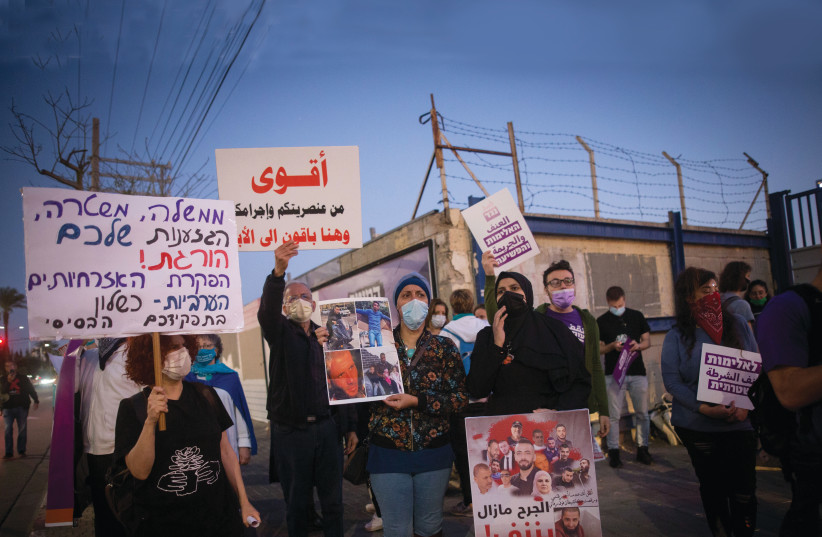A recent statement from the head of the Tzohar rabbinical organization has ruled that people living in "mixed cities" where Jews and Arabs reside side-by-side do not have to sleep in the sukkah, due to safety concerns.
Rabbi David Stav was asked the question of whether or not a person in a mixed town should sleep in the sukkah by a resident of Lod, and he took to his Facebook page to answer it.
The question was asked in light of the recent spate of violence in the cities of Lod and Ramle, including a shooting incident on September 19.
Stav ruled that "where there is danger one must not sleep in the sukkah."
However, he stressed that this was not a baseline ruling for anyone who wishes to apply it to other situations, but that it was given specifically to Jewish people living in any mixed city or neighborhood affected by the violence.
"There are security personnel everywhere who are qualified to determine the correct security assessments for each location," he said in reference to those who may be unsure if the ruling applies to them or not.

However, many people took offense at the ruling, feeling that it was too broad, or that it expressed doubt in the effectiveness of the Israeli security forces.
Israeli politician Dr. Michael Ben Ari, the first outspoken follower of Meir Kahane to be elected to Knesset in 2009, took to Twitter to express his opinion on the ruling.
In a video posted to his account, Ben Ari reminded the citizens of Lod of a story that took place during the intifada, during which Jewish citizens of Hebron rejected an offer that would provide them with a bullet-proof bus, saying that if they used it, they would not last in Hebron and would be driven out.
He said that should the citizens of Lod choose not to sleep in the sukkah, then there would cease to be a Jewish presence in the city.
They should learn from the lessons of Hebron, he said. "Thanks to [them], the children of Hebron roam their streets fearlessly."
He also asked Rabbi Stav why he was issuing rabbinical rulings outside of his own community and asked if he had "received an appointment to be Chief Rabbi of Israel."
"I thought every rabbi rules for his own community, privatization and all that," he added.
Ben Ari later apologized for these statements, however.
Right-wing activist Ayelet Lash also criticized the ruling, asking: "How has it happened that in the State of Israel in 2021 – a country with a defense budget worth billions, a giant army, a police force fat with money and the Shin Bet [internal security agency]... we're scared of sleeping in the sukkah out of fear of gentiles rioting? Have we really returned to Kiev without noticing?"
In contrast to Stav's ruling, Rabbi Meir Bitton, Chief Rabbi of Lod, issued a ruling saying that there were no safety concerns for people wishing to sleep in the sukkah.
"During an assessment which I carried out with the security forces and the city police across the whole city, we did not detect anything unusual and it will be possible to take part in all the mitzvot of the holiday, including sleeping in the sukkah.
"Do not make our city's esteemed residents enter into pointless fears, therefore prevent them from fulfilling this important commandment."
